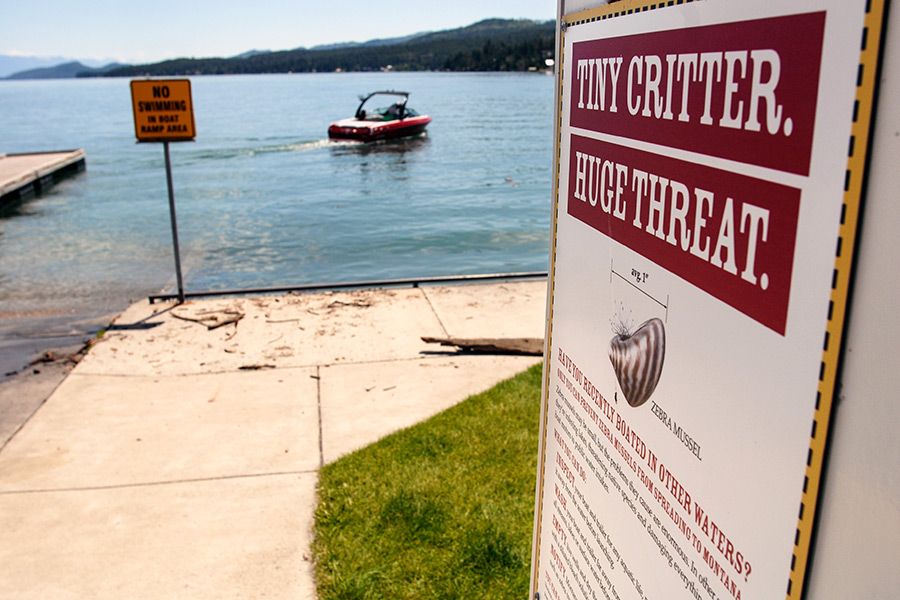HELENA — Concerned about the ecological and economic harm posed by zebra mussels, Montana lawmakers moved forward Tuesday with a pair of proposals aimed at eradicating the invasive mollusk from the state’s lakes and mostly pristine waters.
While the Senate overwhelmingly endorsed the creation of a council that would spearhead the battle against the invasive species, the House advanced a proposal that would raise about $14 million for the effort over two years by increasing fishing license fees and authorizing a new fee on hydroelectric facilities.
Last fall, Gov. Steve Bullock declared a statewide emergency for the state’s water bodies after the discovery of zebra mussel larvae in the state for the first time. As a result, the state established a Montana Mussel Response team.
State officials have long worried about the spread of the tiny, striped shellfish, which latch onto boats, wading boots and other objects.
If left unchecked, the mussels could pose an ecological catastrophe to the state’s mostly pristine waters. It could also mean the loss of hundreds of millions of dollars from the economy.
The mussel has already infested waterways across the Great Lakes region and across the Midwest. Federal and state agencies have spent billions of dollars to contain the spread.
The Western states have been bracing for the mussel’s arrival. That day came sometime last fall when the shellfish was found in Montana waters, prompting widespread alarm.
“Nobody has been successful in eradicating them so far, and nobody has been successful in containing them. The worst-case scenario will happen if we do nothing,” said Republican Rep. Chas Vincent of Libby.
Vincent sponsored a bill that would increase fishing license fees by $2 a year for residents and $15 for nonresidents. The legislation would raise about $6.6 million over two years from the new hydroelectric fees. Officials also expect money from federal sources.
The money will pay for decontamination of infested waters, expanding inspections of boats and other watercraft, and boosting monitoring programs.
